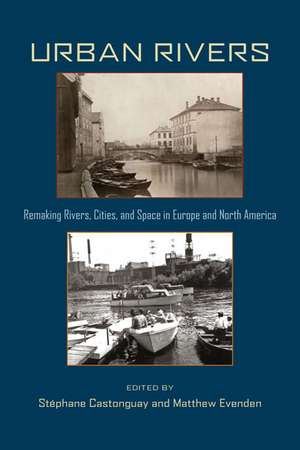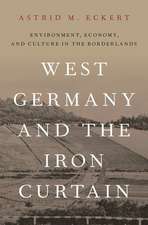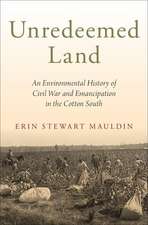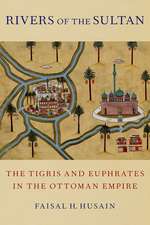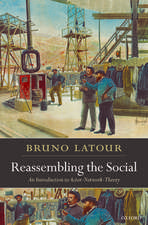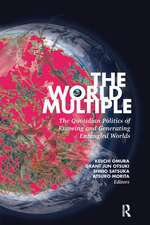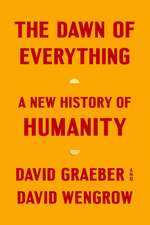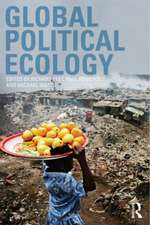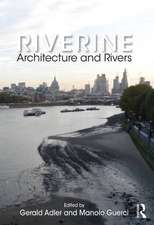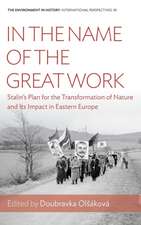Urban Rivers: Remaking Rivers, Cities, and Space in Europe and North America: Pittsburgh Hist Urban Environ
Editat de Stéphane Castonguay, Matthew Evendenen Limba Engleză Paperback – 2 mai 2012
Urban Rivers examines urban interventions on rivers through politics, economics, sanitation systems, technology, and societies; how rivers affected urbanization spatially, in infrastructure, territorial disputes, and in floodplains, and via their changing ecologies. Providing case studies from Vienna to Manitoba, the chapters assemble geographers and historians in a comparative survey of how cities and rivers interacted from the seventeenth century to the present.
Rising cities and industries were great agents of social and ecological changes, particularly during the nineteenth century, when mass populations and their effluents were introduced to river environments. Accumulated pollution and disease mandated the transfer of wastes away from population centers. In many cases, potable water for cities now had to be drawn from distant sites. These developments required significant infrastructural improvements, creating social conflicts over land jurisdiction and affecting the lives and livelihood of nonurban populations. The effective reach of cities extended and urban space was remade. By the mid-twentieth century, new technologies and specialists emerged to combat the effects of industrialization. Gradually, the health of urban rivers improved.
From protoindustrial fisheries, mills, and transportation networks, through industrial hydroelectric plants and sewage systems, to postindustrial reclamation and recreational use, Urban Rivers documents how Western societies dealt with the needs of mass populations while maintaining the viability of their natural resources. The lessons drawn from this study will be particularly relevant to today's emerging urban economies situated along rivers and waterways.
Rising cities and industries were great agents of social and ecological changes, particularly during the nineteenth century, when mass populations and their effluents were introduced to river environments. Accumulated pollution and disease mandated the transfer of wastes away from population centers. In many cases, potable water for cities now had to be drawn from distant sites. These developments required significant infrastructural improvements, creating social conflicts over land jurisdiction and affecting the lives and livelihood of nonurban populations. The effective reach of cities extended and urban space was remade. By the mid-twentieth century, new technologies and specialists emerged to combat the effects of industrialization. Gradually, the health of urban rivers improved.
From protoindustrial fisheries, mills, and transportation networks, through industrial hydroelectric plants and sewage systems, to postindustrial reclamation and recreational use, Urban Rivers documents how Western societies dealt with the needs of mass populations while maintaining the viability of their natural resources. The lessons drawn from this study will be particularly relevant to today's emerging urban economies situated along rivers and waterways.
Din seria Pittsburgh Hist Urban Environ
-
 Preț: 389.76 lei
Preț: 389.76 lei -
 Preț: 429.67 lei
Preț: 429.67 lei -
 Preț: 298.69 lei
Preț: 298.69 lei -
 Preț: 359.45 lei
Preț: 359.45 lei -
 Preț: 393.58 lei
Preț: 393.58 lei -
 Preț: 315.36 lei
Preț: 315.36 lei -
 Preț: 470.60 lei
Preț: 470.60 lei -
 Preț: 392.66 lei
Preț: 392.66 lei - 5%
 Preț: 373.91 lei
Preț: 373.91 lei -
 Preț: 468.26 lei
Preț: 468.26 lei -
 Preț: 429.67 lei
Preț: 429.67 lei -
 Preț: 360.98 lei
Preț: 360.98 lei -
 Preț: 425.05 lei
Preț: 425.05 lei -
 Preț: 178.86 lei
Preț: 178.86 lei -
 Preț: 358.46 lei
Preț: 358.46 lei -
 Preț: 290.14 lei
Preț: 290.14 lei -
 Preț: 429.67 lei
Preț: 429.67 lei -
 Preț: 391.67 lei
Preț: 391.67 lei -
 Preț: 434.51 lei
Preț: 434.51 lei -
 Preț: 424.29 lei
Preț: 424.29 lei -
 Preț: 425.86 lei
Preț: 425.86 lei -
 Preț: 459.98 lei
Preț: 459.98 lei -
 Preț: 293.96 lei
Preț: 293.96 lei -
 Preț: 386.88 lei
Preț: 386.88 lei -
 Preț: 387.82 lei
Preț: 387.82 lei -
 Preț: 389.38 lei
Preț: 389.38 lei -
 Preț: 430.27 lei
Preț: 430.27 lei -
 Preț: 426.79 lei
Preț: 426.79 lei -
 Preț: 424.88 lei
Preț: 424.88 lei -
 Preț: 460.97 lei
Preț: 460.97 lei -
 Preț: 423.91 lei
Preț: 423.91 lei -
 Preț: 385.69 lei
Preț: 385.69 lei -
 Preț: 424.88 lei
Preț: 424.88 lei -
 Preț: 388.96 lei
Preț: 388.96 lei -
 Preț: 425.64 lei
Preț: 425.64 lei -
 Preț: 387.82 lei
Preț: 387.82 lei -
 Preț: 349.81 lei
Preț: 349.81 lei -
 Preț: 385.91 lei
Preț: 385.91 lei -
 Preț: 389.76 lei
Preț: 389.76 lei -
 Preț: 422.17 lei
Preț: 422.17 lei
Preț: 390.71 lei
Nou
Puncte Express: 586
Preț estimativ în valută:
74.77€ • 81.19$ • 62.81£
74.77€ • 81.19$ • 62.81£
Carte tipărită la comandă
Livrare economică 22 aprilie-06 mai
Preluare comenzi: 021 569.72.76
Specificații
ISBN-13: 9780822961857
ISBN-10: 0822961857
Pagini: 256
Ilustrații: 16 photos, 35 maps
Dimensiuni: 152 x 229 x 23 mm
Greutate: 0.48 kg
Ediția:1
Editura: University of Pittsburgh Press
Colecția University of Pittsburgh Press
Seria Pittsburgh Hist Urban Environ
ISBN-10: 0822961857
Pagini: 256
Ilustrații: 16 photos, 35 maps
Dimensiuni: 152 x 229 x 23 mm
Greutate: 0.48 kg
Ediția:1
Editura: University of Pittsburgh Press
Colecția University of Pittsburgh Press
Seria Pittsburgh Hist Urban Environ
Recenzii
“An excellent contribution to the scholarship on the history of urban industrialization, especially as it relates to the use of water, the history of urban-rural relations, and the history of rivering technology and land-use policy from the seventeenth century to the present. . . . Every urban scholar will learn a great deal from this collection, both from the concrete content of the essays and from their divergent methodological and conceptual approaches, which remind us of the necessity to look beyond the merely humanly constructed built environment to consider as well the natural remnants that affect our urban living and that should inform our scholarship. Many of the essays would work well in teaching the subject matter on the college or graduate level.”
—Journal of Modern History
—Journal of Modern History
“Ultimately one of the most fascinating studies on development and ecology I have read. In acknowledging that the rivers and the cities that lie on their banks are instinsically tied to each other, the articles are able to explore, through a consideration of our global history, the potential we have to destroy—and to preserve—our natural resources we often take for granted. It is an excellent look at development and the unintended consequences on the natural system that are integrated into our daily lives.”
—The Englewood Review of Books
—The Englewood Review of Books
“This outstanding collection demonstrates the crucial role rivers have played in the environmental history of Europe and North America. The authors make it clear that rivers have been far more than geographic backdrops to the history of cities. Industrialization and urban growth radically altered rivers and their floodplains. Government schemes to harness rivers often had unintended consequences. A cautionary tale, Urban Rivers should be of interest to historians, geographers, and urban planners focused on the relationship between cities and their surroundings.”
—Charles Closmann, University of North Florida
—Charles Closmann, University of North Florida
“Captures the dynamic relationship between humans and their waterways. Each essay elucidates part of this most complex portion of the nature-culture continuum from the aspect of historical geography and environmental history.”
--Journal of Historical Geography
--Journal of Historical Geography
“Hands down, Urban Rivers is the best environmental history of urban industrial rivers; it provides us with a wonderful mosaic of transnational case studies and of political and environmental challenges that are likely to be of relevance in an increasingly urban world with diminishing resources of clean water.”
—Christof Mauch, Rachel Carson Center for Environment and Society at LMU Munich
—Christof Mauch, Rachel Carson Center for Environment and Society at LMU Munich
Notă biografică
Stéphane Castonguay is Canada Research Chair in Environmental History at the Université du Québec à Trois-Rivières and coeditor of Metropolitan Natures: Environmental Histories of Montreal.
Matthew Evenden is an associate professor in the department of geography and chair of Canadian Studies at the University of British Columbia. He is the author of Fish versus Power: An Environmental History of the Fraser River and coauthor of The River Returns: An Environmental History of the Bow.
Matthew Evenden is an associate professor in the department of geography and chair of Canadian Studies at the University of British Columbia. He is the author of Fish versus Power: An Environmental History of the Fraser River and coauthor of The River Returns: An Environmental History of the Bow.
Descriere
Urban Rivers examines urban interventions on rivers through politics, economics, sanitation systems, technology, and societies; how rivers affected urbanization spatially, in infrastructure, territorial disputes, and in flood plains, and via their changing ecologies. Providing case studies from Vienna to Manitoba, the chapters assemble geographers and historians in a comparative survey of how cities and rivers interacted from the seventeenth century to the present.
